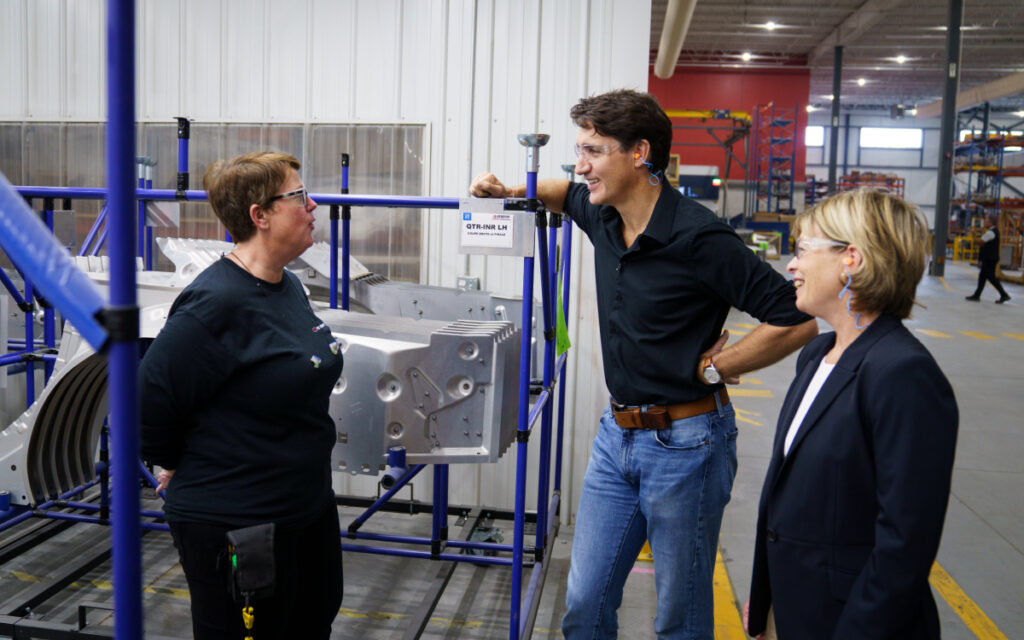
Working with the Bloc solidifies that the Liberals will do and say just about anything to keep their minority government propped up. Pictured: Prime Minister Justin Trudeau. Photo Credit: Justin Trudeau/X.
Federal politicians have been back in Ottawa for exactly one week, and it’s clear that chaos is the name of the game when it comes to the fall session of parliament. As promised, the Conservative Party of Canada made good on their word to try and force a carbon tax election, indicating they would table their first motion of non-confidence next week.
While there was a brief moment of panic in the parliamentary precinct about the prospect of a snap election, the Bloc Québécois acted quickly to signal their intention to vote against the motion. In the words of the Bloc leader, his party doesn’t exist to serve the interests of the Conservatives.
Since the supply-and-confidence agreement was ripped to shreds earlier this month, the Bloc are willing to keep a government on life support alive.
Clearly, the calculation was made that replacing the NDP as the Trudeau government’s dance partner will result in concessions that will be politically palpable for their electoral prospects in the singular region they occupy and run candidates.
It raises an interesting question. If the Bloc, whose entire existence as a party is built on the concept of defending the interests of Quebecers, is seeking concessions from the Liberal Party, who hold next to no seats in Saskatchewan and Alberta, how is federal policy being developed that serves the interests of all Canadians from coast-to-coast-to-coast?
The answer is simple. The Bloc isn’t focused on supporting nation-building projects or programs that seek to unite our country, and that provide a pathway to building prosperity for Canadians. Instead, their interests are narrowly focused on what is good for the state of their home province, a sentiment perfectly reflected in a motion brought forward by the leader of the Bloc in 2022 when he attempted to have parliament sever ties with the British monarchy.
Conversely, the Liberals are clinging hard to power. Working with the Bloc solidifies that they will do and say just about anything to keep their minority government propped up to try and rebuild their debilitated electoral prospects before heading to the polls. It’s likely that any policies developed between the two parties stand to benefit Central Canada, without any real thought or consideration as to how this may impact other regions of the country.
If the Trudeau Liberals were being honest, they would realize that joining forces with the Bloc is a short-term play that stands to cause great harm to our country’s unity in the long run. Further division of our country based on regional dog whistles and the emboldening of a political party that has championed Quebec sovereignty as a core tenet should not be a solution that is being sought after.
Canada is a diverse and vast region, and its people deserve to be governed by a political party that has political representation in every province and territory. If the country is to once again come together and solve for the regional challenges that have flared up in recent years, it will require more than just the bandage solutions put forward by the Liberal Party and the Bloc.

Josie Sabatino is a Senior Consultant at Summa Strategies, focused on providing strategic insight and helping clients meet their objectives in an ever changing and complex political and regulatory environment. Prior to joining Summa, Josie spent nearly a decade in political communications and most recently served as the Director of Communications to the Hon. Erin O’Toole, former Leader of the Official Opposition.






